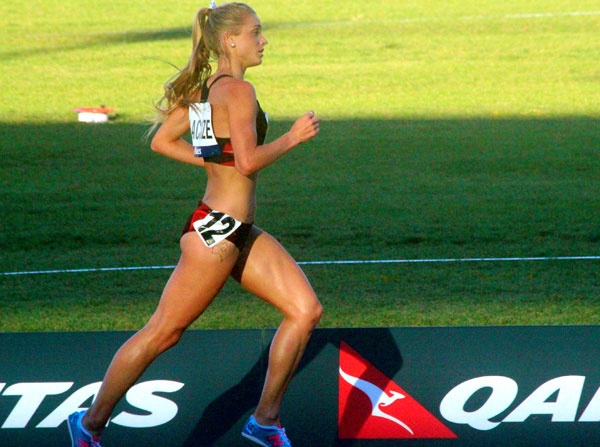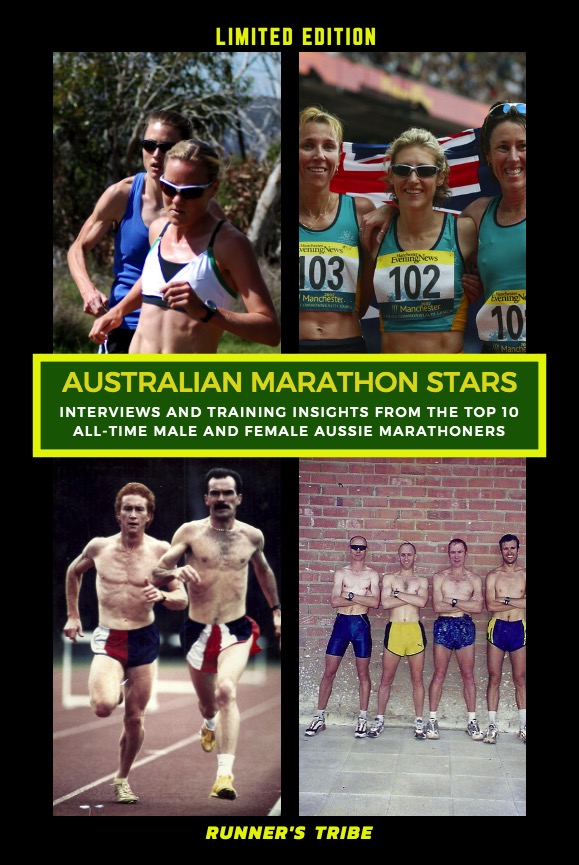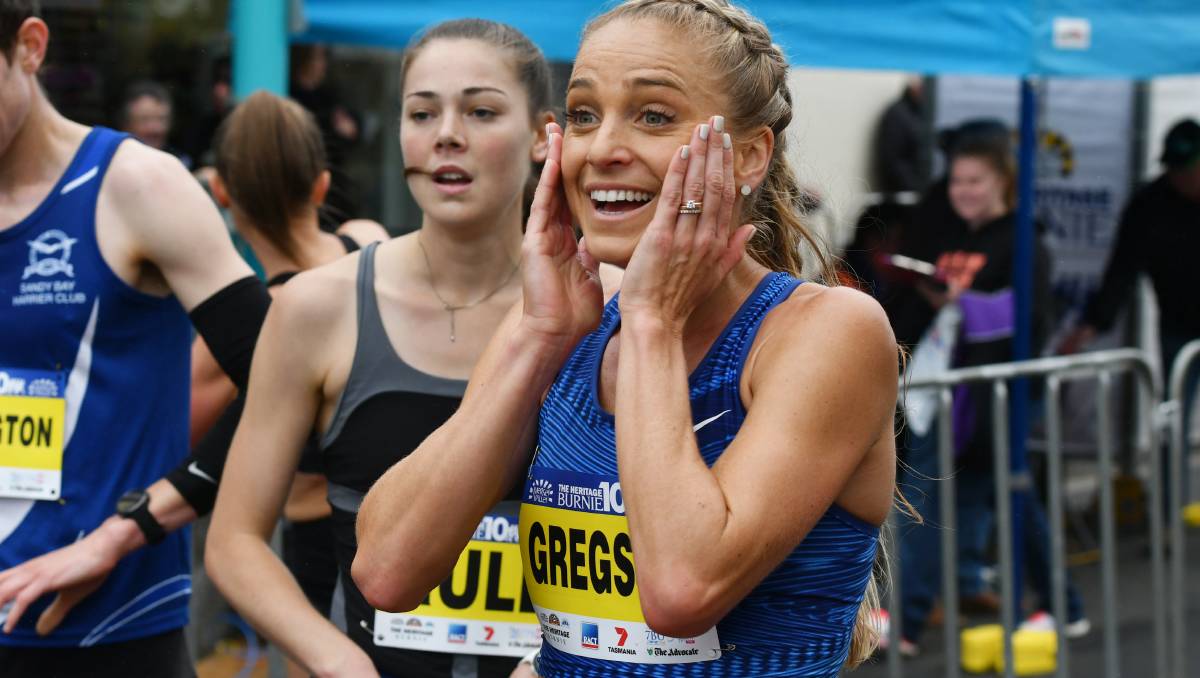By Len Johnson
Years ago, when Test cricket was at its zenith, the Chappell brothers were the stars of the Australian batting line-up.

Younger brother Greg was elegance personified, a naturally gifted batter possessed of impeccable timing which saw the ball race off his bat to the boundary with a seeming minimum of effort. Older brother Ian was blessed with many of the same qualities, but not the knack of making batting appear effortless. A compulsive fidgeter at the batting crease, when the ball raced off Ian Chappell’s bat you knew it had been struck with all the force he could muster.
It was often said of the pair that if you had to watch someone bat all day it would be Greg Chappell. But if you had to choose someone to bat for your life, it would always be Ian Chappell.

This thought came to mind after watching Genevieve Gregson run 2:23:08 in last Sunday’s Valencia marathon. Just as she has so many times now throughout her career, Gregson produced on the big occasion. When it mattered. If you wanted someone to run for your life, Genevieve Gregson would be a pretty good choice.
 Ian Chappell batted in the critical number three position for Australia. The number three has to have qualities of defence, in case the first wicket falls early, and of attack so as the team can build quickly on a strong opening partnership.
Ian Chappell batted in the critical number three position for Australia. The number three has to have qualities of defence, in case the first wicket falls early, and of attack so as the team can build quickly on a strong opening partnership.

Coincidentally, Gregson jumped from twelfth to third on the Australian women’s all-time list leaping over the likes of Olympic silver medallist Lisa Ondieki, Commonwealth Games champion Jess Stenson (Trengove) and dual Commonwealth champion Kerryn McCann, among others.
Australia’s All-Time Top 10 – Women’s Marathon as of 8/12/2023
- Sinead Diver, 2:21:34 – Valencia, Spain (4.12.22)
- Benita Willis, 2:22:36 – Chicago, USA (22.10.06)
- Genevieve Gregson, 2:23:08 – Valencia (3.12.23)
- Lisa Weightman, 2:23:15 – Osaka, Japan (26.2.23)
- Izzi Batt-Doyle, 2:23:27 – Valencia (3.12.23)
- Lisa Ondieki, 2:23:51 – Osaka, Japan (31.1.88)
- Eloise Wellings, 2:25:10 – Nagoya, Japan (13.3.22)
- Jessica Stenson, 2:25:15 – Perth, Australia (17.10.21)
- Nickey Carroll, 2:25:51 – London, Great Britain (18.4.99)
- Kerryn McCann, 2:25:59 – London, Great Britain (16.4.00)
- Ellie Pashley, 2:26:21 – Nagoya, Japan (10.3.19)
When Gregson made her marathon debut on the Gold Coast only five months earlier. She ran 2:28:33. She looked like she could go faster: but this much faster?

Since Genevieve LaCaze forced her way into the London 2012 Olympic team with a late qualifier in the 3000 metres steeplechase her ability and determination have been obvious. At the Glasgow 2014 Commonwealth Games, along with teammates Madeline Heiner and Vicki Mitchell, fought out the steeple against three strong Kenyan competitors, in the Rio 2016 Olympics she and Heiner were finalists in the steeple while Heiner, Gregson and Eloise Wellings were finalist in the 5000. A finalist again in Doha in 2019 and at the Tokyo 2021 Olympics where she crashed at the water jump with a ruptured achilles tendon.
 Now, a new event but the same Gregson. In Valencia she led three other Australians in a substantial re-writing of the Australian all-time women’s list. Just 19 seconds behind Gregson, Izzi Batt-Doyle recorded 2:23:27 for fifth place on the list. Lisa Weightman, who had already run 2:23:15 earlier in the year, was just outside the top 10 in Valencia in 2:24:18. Wellings finished in 2:25:47.
Now, a new event but the same Gregson. In Valencia she led three other Australians in a substantial re-writing of the Australian all-time women’s list. Just 19 seconds behind Gregson, Izzi Batt-Doyle recorded 2:23:27 for fifth place on the list. Lisa Weightman, who had already run 2:23:15 earlier in the year, was just outside the top 10 in Valencia in 2:24:18. Wellings finished in 2:25:47.

The Paris Olympic Games are still eight months away, but the Valencia results mean that those yet to make their bids for selection have work to do. Sinead Diver broke Benita Willis’s national record in Valencia last year. Stenson won the Commonwealth women’s marathon in Birmingham. Like Gregson, both runners have proven credentials over several championship cycles. But it is still going to take something special to get ahead of the Valencia performers.
When Runners Tribe published an interview book with Australia’s top-10 all-time male and female marathoners some six years back, the list had remained stagnant for some time. The men’s still hasn’t changed that much, though Brett Robinson finally broke Rob de Castella’s national record with a 2:07:31 in Fukuoka last year and Liam Adams broke through to 2:08:39 on the Gold Coast earlier this year. Andrew Buchanan ran 2:10:20 this year to move into equal tenth on the all-time list with Dave Chettle.

The change in the women’s list has been profound. The national record has been broken (2:21:34, Sinead Diver); Gregson has pushed through to third on the all-time list; Weightman has actually dropped one place to fourth but has run two minutes faster (2:23:15). Batt-Doyle has jumped to fifth.
These performances have pushed Lisa Ondieki’s 2:23:51 in 1988 back into sixth place in the top-10. Wellings and Trengove have improved to 2:25:110 and 2:25:15, respectively, though dropping down to seventh and eighth. Celia Sullohern was in tenth place back then but that spot is now occupied by McCann though with a 2:25:59 compared with Sullohern’s 2:29:27.

The shoes, I know, but our men have got the new shoes too while not seeing the same impact on the all-time top 10 as Australian women.

Not that the first weekend in December was absent any strong performances by Australian male marathoners. Robinson, returning to Fukuoka after last year’s national record, again ran strongly for a seventh place 2:08:29 while Thomas do Canto improved almost three minutes on his previous best to 2:11:51 in Valencia.




